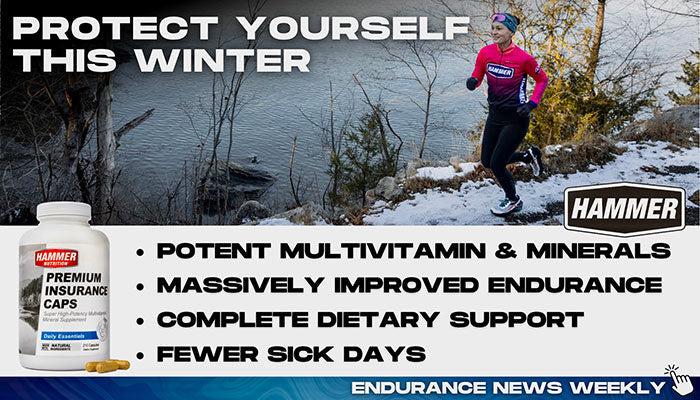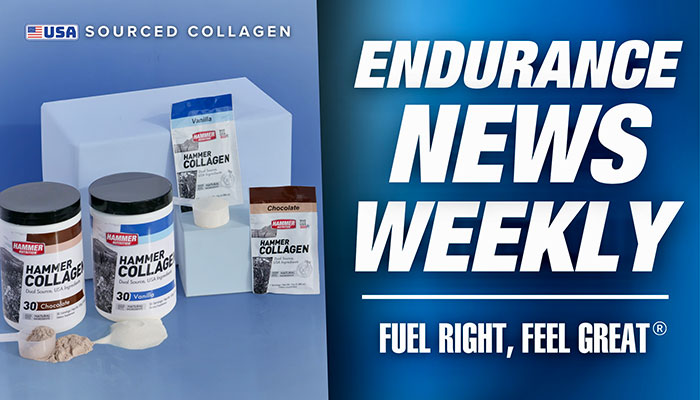
BY STEVE BORN
For as long as there's been a Hammer Nutrition, we've been relentlessly diligent in providing the information you need regarding the harmful effects of artificial sweeteners. They’re all “worst offenders” as far as we're concerned. Still, one in particular, sucralose, the most popular artificial sweetener in the United States (used in over 6,000 food products!), [1] seems to get even more “airtime” than the others.
Roughly 15 years ago, we unhesitatingly stated, “While sucralose may begin as a sugar molecule, the end product is a synthetic chemical with a chlorinated core. Making sucralose involves a five-step process in which three chlorine molecules are added to a sugar molecule. This chemical process alters and converts the chemical composition of the sugar so much that it ends up being a type of molecule that does not occur in nature. This artificial sweetening ingredient is possibly worse than the processed simple sugars it replaces. It is difficult to imagine that a synthetic chlorinated disaccharide is an improvement.” [2]
Nearly a decade ago, we discussed research [3] involving both humans and mice, revealing that artificial sweeteners, including sucralose, had a significant effect on gut bacteria, an effect that increased glucose intolerance.
Augmenting that study, in Endurance News #121, we presented research [4] showing that the combination of sucralose and carbohydrates impairs insulin sensitivity. That will not only significantly decrease exercise capacity, resulting in muscle fatigue, but it will also put you on the fast track to diabetes. Also, from that research: "This metabolic impairment is associated with decreases in neural responses to sugar, suggesting dysregulation of gut-brain control of glucose metabolism."; Meaning that the signals the brain sends to the gut, and vice versa, are impaired for properly metabolizing blood glucose... that's not good at all!
Now, as bad as all those findings are—and there's no question about that—the most recent research on sucralose is the most damning. While we weren't too surprised, our jaws hit the floor nonetheless. Check this out:
Findings from a very recent study (May 29, 2023) published in the Journal of Toxicology and Environmental Health, Part B revealed serious health concerns with sucralose. These concerns were so alarming researchers said people should stop consuming and that more government regulation should be enacted. [5]
The researchers, led by Dr. Susan S. Schiffman, conducted experiments exposing human blood cells and gut tissue to sucralose, which produces a substance called sucralose-6-acetate. Their findings confirmed earlier research linking sucralose to gut health problems, such as leaky gut syndrome (intestinal permeability). In this condition, bacteria and toxins leak through the intestinal wall. Bloating, a burning sensation, diarrhea, gas, and painful digestion are the unpleasant symptoms of this disorder.
The researchers then discovered something far worse than leaky gut syndrome:
The sucralose-produced substance, sucralose-6-acetate, is genotoxic and damages DNA, causing it to break apart. This most-undesirable process can result in a variety of diseases, including cancer.
Has your jaw dropped yet?
Disturbingly, the researchers also found sucralose-6-acetate amounts in regularly stocked food items so high they exceeded the safety levels currently allowed in Europe.
Dr. Schiffman commented: "It's time to revisit the safety and regulatory status of sucralose because the evidence is mounting that it carries significant risks. If nothing else, I encourage people to avoid products containing sucralose. It's something you should not be eating."
Sucralose, sold under the brand name Splenda, is used by countless people to sweeten their coffee or other beverages. As mentioned earlier, this undeniably harmful substance is ubiquitous, as it's in over 6,000 food products such as baked goods, drinks, chewing gum, frozen dairy desserts, and more.
Sucralose is also in numerous athletic fuels—sports/energy drinks, energy gels, bars, and more—so if you're not using Hammer Nutrition products, look at the label of the fuels you’re currently using. If they contain simple sugars (glucose, sucrose, fructose, etc.), excessive amounts of sodium, and/or artificial colors, flavors, or sweeteners—especially sucralose—it's time to switch to Hammer.
Compared to the glut of harmful ingredient-containing sports fuels flooding the market, there is no comparison. Hammer Nutrition products contain no refined sugars, excess sodium, questionable ingredients, or artificial anything, and that most definitely includes sucralose.
Steering clear of sucralose will help you perform at your best athletically, save your DNA and help protect you from many serious health consequences.
REFERENCES:
[1] https://usrtk.org/sweeteners/sucralose-emerging-science-reveals-health-risks/
[2] https://www.hammernutrition.com/knowledge/faqs/use-artificial-sweeteners-in-products
[3] Suez J, Korem T, Zeevi D, et al. Artificial sweeteners induce glucose intolerance by altering the gut microbiota. Nature. 2014 Oct 9;514(7521):181-6.
[4] https://doi.org/10.1016/j.cmet.2020.01.014
[5] https://www.tandfonline.com/doi/full/10.1080/10937404.2023.2213903










12 comments
great article Steve.
I avoid fake sugar more than I avoid simple sugar.
Wow, thank you.